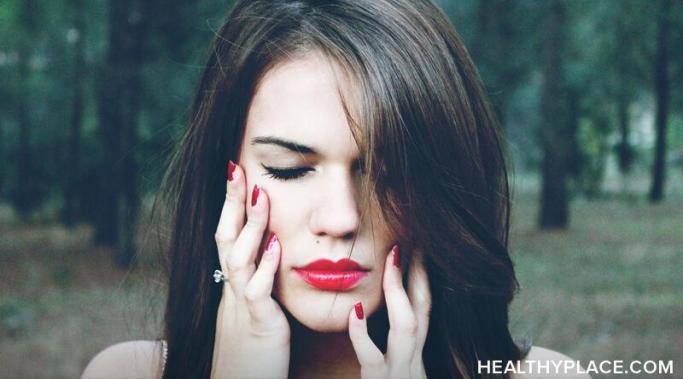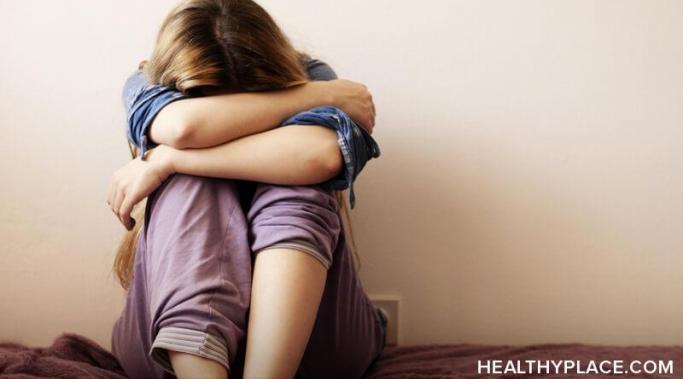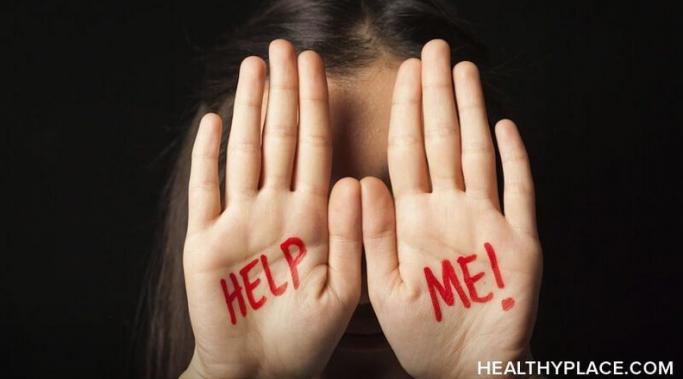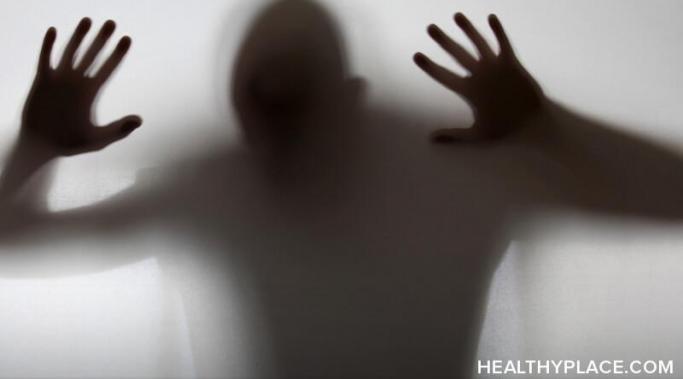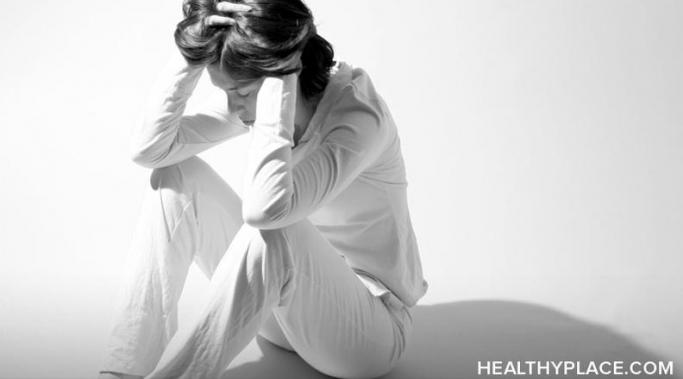Most likely, you will suffer a loss of identity in a verbally abusive relationship. The relationship will take you as far away from yourself as it's possible to go. Not only will you experience a loss of personal identity, you may even struggle to remember who you were before the abuse took hold. You will become a collaborator in the abusive process and the abuser will make you feel as though everything you experience is your fault, calling into question your personality and your motives (What Are Victims Responsible for in an Abusive Relationship?). So why does this happen, and can we ever unhook ourselves from it? Here's what I learned after my loss of identity in a verbally abusive relationship.
Disorders Resulting from Abuse
When in the depths of relationship abuse, you're probably considering how your abuser is sabotaging your life. While being proactive and optimistic are important and beneficial, understanding your circumstances is as well. Relationship abuse commonly consists of many abusive behaviors that are sabotaging to the victim's life, and while not all of the behaviors below may be the case for every abusive relationship, there are certainly many that may feel familiar for different cases. Warning, bleak reality checks ahead.
The link between verbal abuse and depression is well known, but I didn't realize I had depression until my verbally abusive relationship ended and I felt suicidal. It's hard to write those words because they feel so alien to me now, but it shouldn't be. It's the truth -- a truth that will resonate with anyone who's ever been told by the person they love most that they're not enough: not thin enough, not funny enough, not smart enough, or not enough to make someone happy. But was I always prone to these feelings of depression and hopelessness, or were they triggered by the verbal and emotional abuse in my relationship?
Verbal abuse and the codependent love addict often go hand in hand. There are several different types of love addicts such as the obsessive love addict, the sex addict, the relationship addict, the codependent love addict and the narcissistic love addict. Some of the different types even complement one another like magnets with opposite charges, an obvious attraction with a force difficult to interrupt. The codependent love addict pairs both painfully and perfectly with the narcissistic love addict. Verbal abuse is a routine offense for a narcissist in a relationship and accepting abuse is typical for a codependent love addict. Discovering the signs and symptoms of a codependent love addiction may be illuminating as well as an important step toward recovery.
I still have dreams about abuse despite the abusive relationship ending years ago and the progress I've made in my recovery from verbal and psychological abuse. Sometimes I am trapped in a house with him, unable to escape. Other times the roles are reversed: I become the abuser, and he is the one begging for my love and respect. But then there are the nightmares -- the dreams so violent and terrifying that they take weeks to shake off. I'm sure these forays into my subconscious are simply my brain trying to process what happened, but the dreams about abuse always take me right back to the way I felt at the time of the relationship abuse, and sometimes they're just downright confusing.
Most people think physical violence is more dangerous than verbal abuse in a relationship, but this is a misconception. It's why we often hear well-meaning advice such as, "If an abuser's behavior turns violent, it's time to leave." But should it have to get to this point before the abused person walks away? Emotional abuse and physical violence are not mutually exclusive -- in fact, one is usually a precursor to the other. So, let's explore the psychological side effects of verbal abuse, some of which have dangerous implications.
After verbal abuse, my mental health didn't automatically return to normal. The first year after my verbally abusive relationship ended was tough. Not only did I struggle with the after-effects of verbal abuse -- namely anxiety, depression, and low self-esteem -- I also met someone new (let's call him A) and fell in love all over again. A was everything I had ever wanted in a partner and my instincts were telling me "he's the one" from the day we met. So why couldn't I let myself be happy? With my verbal abuser firmly out of the picture, why was I still plagued with anxiety? Mental health problems may follow us long after verbal abuse ends.
The cycle of violence and abuse typically consists of three phases: tension-building, abuse, and honeymoon. The first two phases describe themselves and the honeymoon phase occurs after the abuse and gives the abuser a chance to beg the victim's forgiveness or otherwise convince the victim to stay. Over time, the tension-building and honeymoon phases tends to shorten or disappear, leaving us to wonder why abusive relationships can last so long. This routine makes staying in an abusive relationship manageable; both victim and abuser come to accept this routine as normal.
Big ol' belly laughs that catch you by surprise feel so good! They feel better now that feeling happy doesn't make me sad. That idea is confusing; laughing until you cry doesn't usually mean you cry sad tears, but it happened to me a lot during my abusive marriage. Usually, the laughing started during a phone call with my sister. Anything could get us going, and for a few beautiful minutes, nothing mattered except the funny bit between us. I laughed until my sides ached and the tears flowed like water.
But then, when the laughter dried up and I started wiping the tears from my eyes, the tears wouldn't stop. My face, sore from smiling, suddenly dropped into a frown. I covered my face because I felt embarrassed to feel so...damn...sad. Those last tears fell because when the laughter was done, I returned to my sad, closed-off life of mind-numbing pain. Sometimes I would stay on the phone with her when she asked what was wrong. Usually I cut the conversation short when I felt the change to pain begin.
A symptom of PTSD is reliving the abuse, the trauma, repeatedly in the form of flashbacks, nightmares and intrusive memories. I believe there's another piece of the PTSD puzzle in reliving abuse by hearing the abuser's voice in your head--repeatedly, intrusively, . . . so ingrained a memory that it speaks in the abuser's voice without us realizing it is only the abuser's voice. It's only a memory. Reliving verbal abuse in the context of PTSD makes me forget that the abusive voice is not my own.
